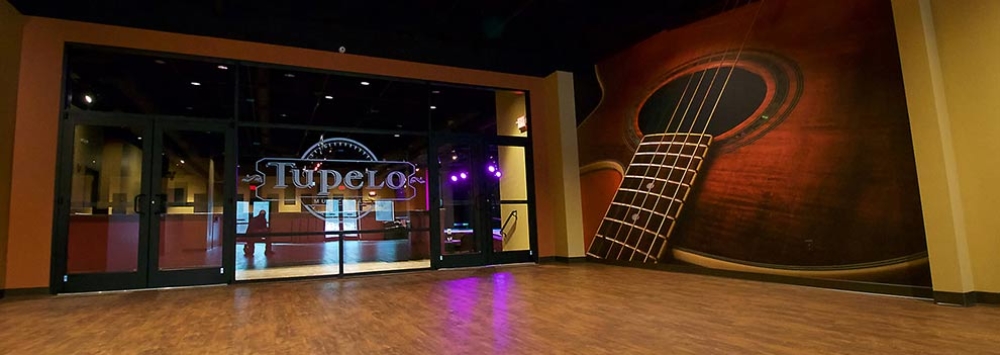

CONCORD – The show must go on, even in a pandemic.
So about $12 million of CARES Act money will raise the curtain at New Hampshire live performance venues that have been impacted by the coronavirus, following an announcement from the governor on Monday.
“That’s fantastic news,” said Scott Hayward, owner of Tupelo Music Hall in Derry, who said he was hearing about it for the first time.
“Stunned” was the word used by Nicki Clarke, executive director of the Capitol Center for the Arts.
Clarke said other historic state venues were thinking that they were not going to be able to make it past the fall of 2021 without another infusion of relief money.
Hayward said everyone has been losing money or sitting tight with the “perfect storm” of the lack of consumer confidence, artists refusing to tour, and social distancing requirements making it almost impossible to survive.
Tupelo is one of very few for-profit, live music venues in the nation able to host shows this past summer. They did it with an innovative plan to make it a drive-in vehicle experience, outdoors but that won’t work in winter.
On Monday, Gov. Chris Sununu and Commissioner Taylor Caswell, the new executive director of the Governor’s Office for Emergency Relief and Recovery (GOFERR), announced the allocation from the state’s CARES Act Coronavirus Relief Funds.
This is about the 20th program that the governor has created to distribute $1.25 billion in state aid from the federal government.”
Sununu explained the move, with about $200 million CARES Act dollars to be distributed and used before Dec. 31, this is about saving the state’s treasured cultural offerings.
“Live performance venues are the lifeblood of many communities and serve as an economic engine that drives tourism to help sustain main street businesses, restaurants, and hotels. To lose these venues would be an economic blow that would have a widespread and profoundly negative ripple effect felt across these communities for many years to come.”
The new program will benefit both for-profit and not-for-profit venues.
Hayward said the COVID-19 health crisis has been “the perfect storm” for venues as performers are not willing to go on tour, consumer confidence is low and venues need a steady stream of both to keep employees and the high overhead costs paid.
He said he did not know enough about the new program to say whether he would apply but said it was the combination of Main Street relief through the CARES Act and other funds which allowed him to bring back all 48 employees and offer 106 live shows since the pandemic began.
In the winter, he said they will go to offering 130 seats for sale rather than the capacity of 700 but he notes spring shows are already canceling because artists are not willing to tour.
“We have tried to do a lot of local stuff,” such as comedians from the Boston area, Hayward said, and that has helped keep the venue afloat.
The same has been true at the Capitol Center where Clarke said their seating in the main theater has been reduced to 300 from a capacity of 1,300 and in its smaller, Bank of New Hampshire Stage, a maximum of 100.
Sununu said the program will allow for $1.5 million maximum for each venue and the money will target New Hampshire live performance venues that have been hit especially hard by the COVID-19 pandemic.
It is not just live theatre and music venues that can apply but sports venues as well.
All have seen events postponed or canceled, and, although some live performance venues have been able to provide entertainment, they are doing so with fewer shows and limited capacity to maintain social distancing in comparison to the usually large groups of people coming and sitting shoulder-to-shoulder.
“New Hampshire’s live performance venues are struggling to pull through with little or no revenue while still facing the heavy expenses of owning a live performance venue.
The rules are that the facility is primarily engaged in hosting live theatrical presentations, musical entertainment, or sporting or racing events that are seated, ticketed, and open to the public.
The program is open to both for-profit and nonprofit facilities meeting these criteria and will provide recipients up to $1.5 million.
Qualified live performance venue owners have a week to apply.
They can apply to the program starting now by clicking here. The deadline is at the end of the day on October 13, 2020.







